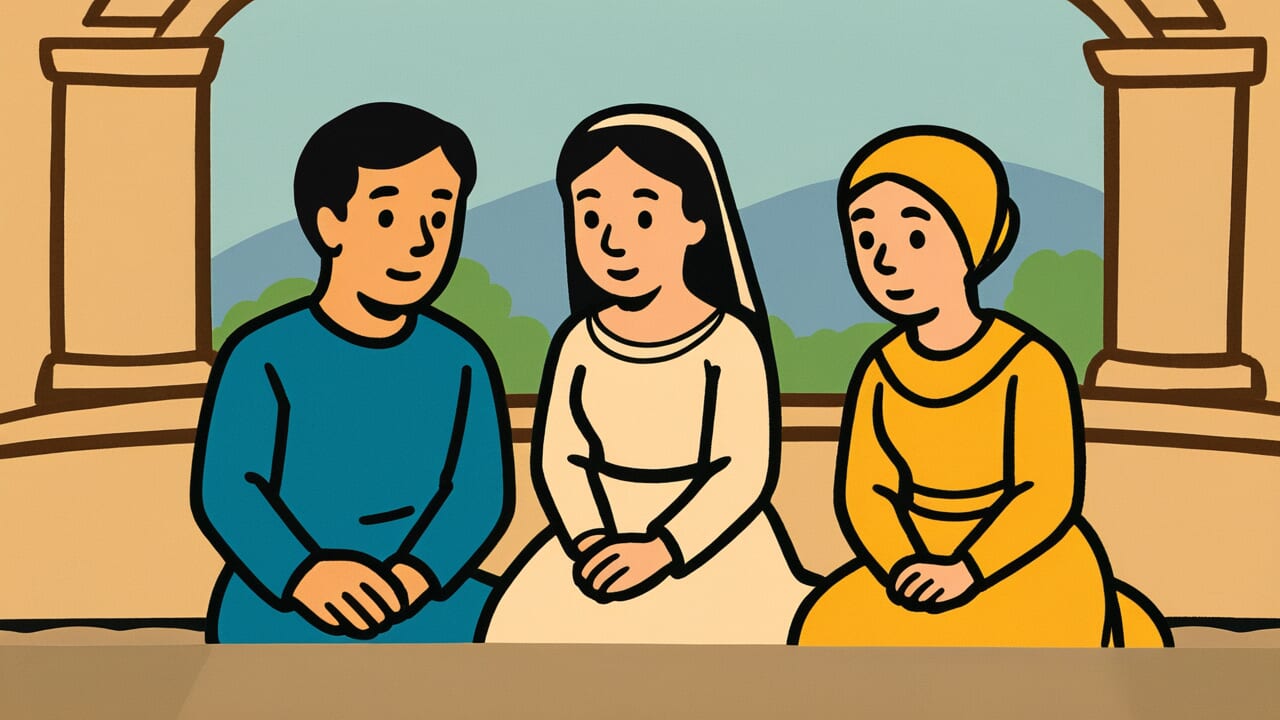How to Read “One daughter, two sons”
いちひめにたろう
Meaning of “One daughter, two sons”
“One daughter, two sons” is a proverb that describes the ideal birth order for children. It means having a girl first, then a boy.
This expression comes from the perspective of raising children. Girls were generally considered easier to raise and less demanding than boys.
People use this proverb when talking about pregnancy or childbirth. They also use it when discussing the gender of children.
For example, someone might say “We were blessed with one daughter, two sons” to express they have the ideal family composition.
Today, some people question this proverb’s values from a gender equality perspective. However, it originally came from practical parenting wisdom in times when medical care was undeveloped.
The idea was that parents could gain experience raising a girl first. Then they would feel more confident raising a boy. This was practical thinking that benefited both parents and children.
Origin and Etymology
The exact origin of “One daughter, two sons” is unclear in historical documents. However, people likely used it among common folk during the Edo period.
The background of this saying relates deeply to the reality of child-rearing in those times.
First, “one daughter” meant having a girl first was desirable. People thought girls were generally easier to raise.
Infant mortality rates were high back then. Girls were considered stronger and less prone to illness. Parents could gain child-rearing experience by having a daughter first.
“Two sons” meant having a boy second was ideal. Boys were needed as heirs to continue the family line.
But there was more to it than that. Parents could use their experience from the first child to raise the boy more carefully. This was practical wisdom.
Also, if an older daughter was already born, she could help her mother care for her younger brother.
In this way, “One daughter, two sons” was not just wishful thinking. It was life wisdom passed down to survive harsh times.
Usage Examples
- My friend found out her second child would be a boy and was happy it would be exactly one daughter, two sons
- My mother-in-law said one daughter, two sons is ideal, but my children are precious no matter what order they came in
Universal Wisdom
The proverb “One daughter, two sons” contains the wisdom of risk management that humans instinctively possess. People are creatures who constantly try to prepare for an uncertain future.
This proverb has been passed down because it reflects this essential human nature.
When facing the greatest challenge of life—raising children—we all feel anxious. We fear the unknown, worry about failure, and desperately want to protect precious lives.
These feelings remain constant across time. Our ancestors sought ways to ease this anxiety. They captured the wisdom learned from experience in words.
What’s interesting is that this proverb brings the concept of “practice” into child-rearing. Humans learn from failure and grow through experience.
But in parenting, there’s pressure that failure is not an option. That’s why the idea emerged of gaining experience with a supposedly easier child first.
This reflects the universal human desire to “learn step by step.” We want to start with easier tasks rather than tackle difficult challenges immediately.
This psychology shows a deep understanding of human nature. It connects to modern educational systems as well.
When AI Hears This
Primate research reveals an interesting phenomenon. Parents tend to over-invest in their first child.
With first-time parenting, parents become overly nervous and pour in excessive energy. This seems good at first glance. But it actually leads to parental exhaustion.
As a result, it becomes inefficient as a survival strategy for the whole family.
Here’s what’s noteworthy: “learning optimization” observed in many primates. By the second child, parents can distinguish what’s truly important from what’s not through experience.
In other words, they can allocate limited resources efficiently. For humans, statistics show parents have more mental space from the second child onward. As a result, children tend to be more emotionally stable.
The gender element is even more interesting. In many mammals, female offspring are relatively easier to raise. Their survival rates are also more stable.
Males require more resources to grow. But after parents experience trial and error with the first child, they can better handle that burden.
This proverb accurately captured two biological elements through experience. One is the process of parents acquiring parenting skills through a learning curve. The other is the difference in parenting burden by gender.
Human society independently discovered and verbalized patterns that evolution embedded over millions of years.
Lessons for Today
This proverb teaches us a truth. There is no such thing as an “ideal order” in life.
Our ancestors certainly found one ideal through experience. But that was merely wisdom under limited conditions.
What we should learn is not the proverb’s conclusion itself. It’s the attitude behind it.
That attitude is humility—trying to learn from past experience and wisdom when facing uncertain situations. Our ancestors left their experiences in words. They tried to pass them to the next generation. That attitude itself has value.
Your life also has various “orders” and “timings.” But even if things don’t go ideally, you can still learn and grow from them.
What matters is doing your best in the given situation. It’s finding new wisdom from there.
Whether it’s one daughter, two sons or not, whether it’s two sons then one daughter, or any other form—there’s always meaning and learning there.
Rather than chasing ideals, cherish your present reality. Isn’t that true wisdom?



Comments